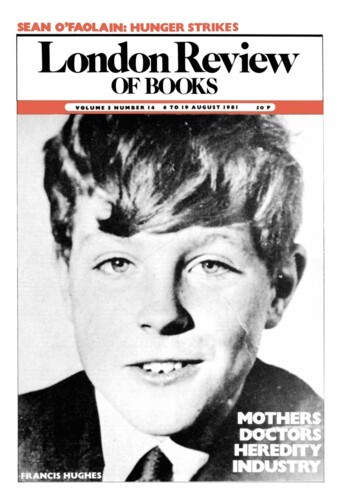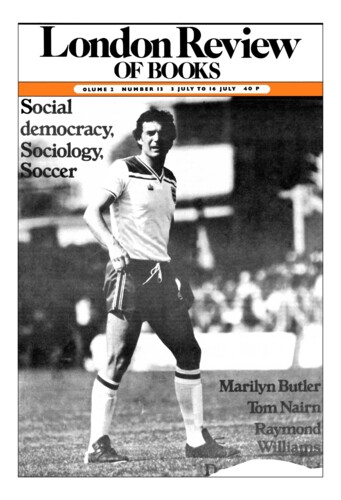The poet E.E. Cummings was born with what are called all the advantages, or with enough of them. It was in Cambridge, Massachusetts, in ‘a huge, three-storied, many-roomed structure with 13 fire-places… not far from Harvard Yard’. His mother was so considerate of her son’s future biographer that she recorded hour by hour the stages of her labour. ‘Miss MacMahon saw child’s hair at 4’ – four o’clock in the afternoon of 14 October 1894, and the boy was born at seven. More important than these details – except perhaps to an astrologer – is the fact that the boy’s father was an assistant professor at Harvard, that Cambridge was still thought of as the home of Henry Wadsworth Longfellow and James Russell Lowell, both recently deceased, and that across the river was a Boston which still called itself ‘the Athens of America’. Edward Cummings, the father, was a man of modern outlook, if only in certain respects. A sociologist who had been at Toynbee Hall as well as at the universities of Paris and Berlin, he knew about strikes and lock-outs, arbitration, penal codes, and indeed all that a socially aware person of the Nineties could decently be aware of. He was a Unitarian, but in full Puritan righteousness. True to form, he found that ‘sociology is more religious than most theology’; in due course, he became a minister. He gave his son a Unitarian name, Estlin, which is associated also, though indirectly, with the family of Walter Bagehot. Both father and mother were of old New England stock, the mother the ‘better’ of the two, though her father went to prison for a family forgery. Edward Cummings’s grandfather was a tavern-keeper. However, neither the forger nor the tavern-keeper was spoken of in the Cambridge home: only the ghosts were there.
The poet E.E. Cummings was born with what are called all the advantages, or with enough of them. It was in Cambridge, Massachusetts, in ‘a huge, three-storied, many-roomed structure with 13...


